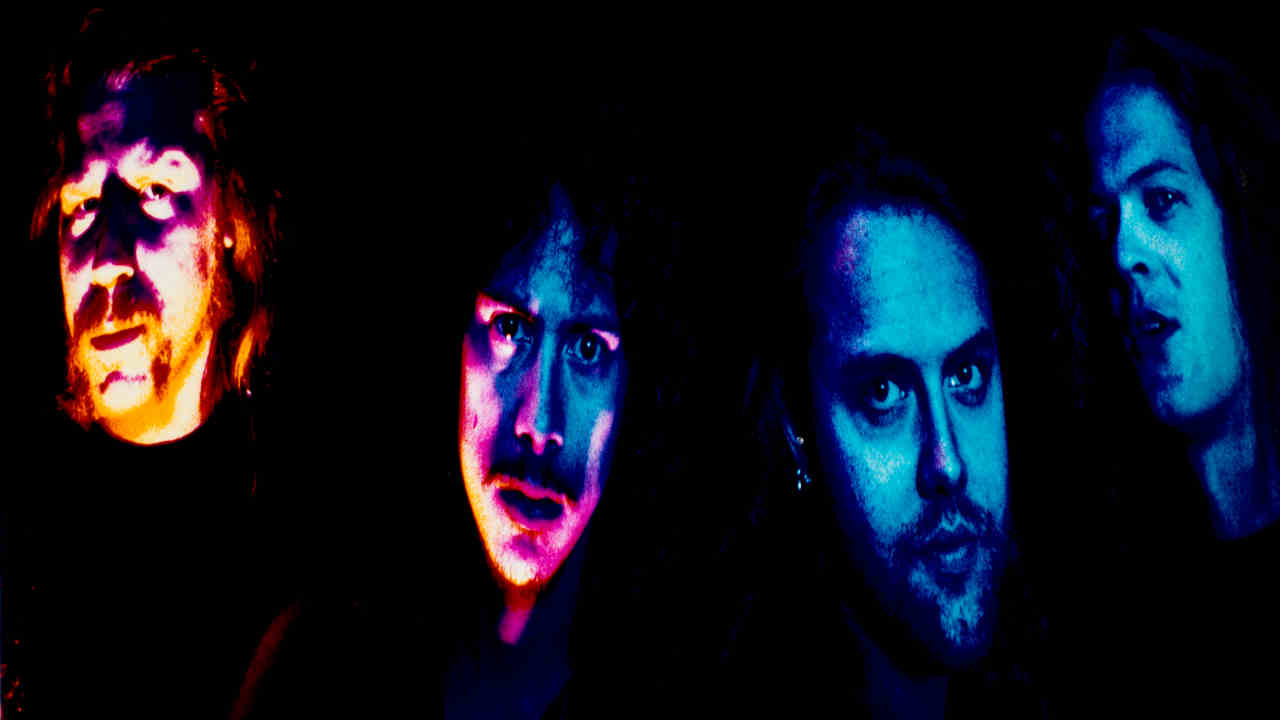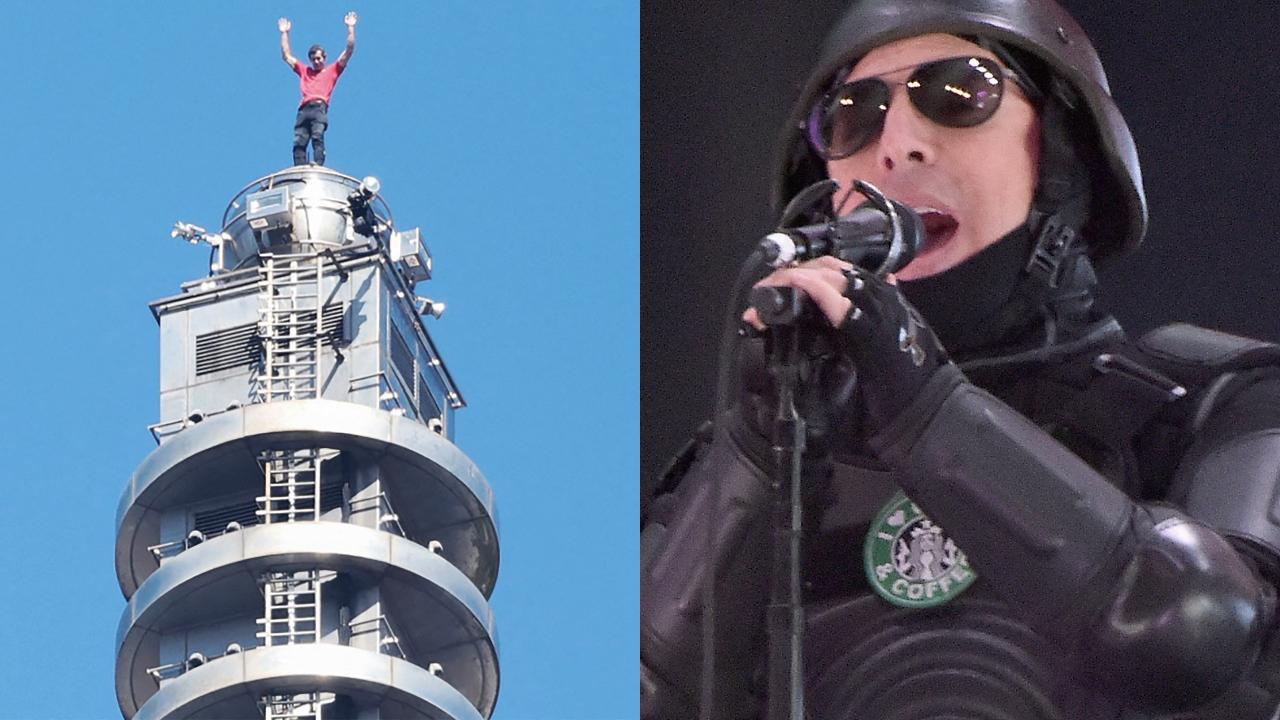The Story Behind The Song: Metallica’s Enter Sandman
Their fans were worried about Metallica going “Bon Jovi”. But Enter Sandman would become one of metal’s greatest ever songs

Select the newsletters you’d like to receive. Then, add your email to sign up.
You are now subscribed
Your newsletter sign-up was successful
Want to add more newsletters?

Every Friday
Louder
Louder’s weekly newsletter is jam-packed with the team’s personal highlights from the last seven days, including features, breaking news, reviews and tons of juicy exclusives from the world of alternative music.

Every Friday
Classic Rock
The Classic Rock newsletter is an essential read for the discerning rock fan. Every week we bring you the news, reviews and the very best features and interviews from our extensive archive. Written by rock fans for rock fans.

Every Friday
Metal Hammer
For the last four decades Metal Hammer has been the world’s greatest metal magazine. Created by metalheads for metalheads, ‘Hammer takes you behind the scenes, closer to the action, and nearer to the bands that you love the most.

Every Friday
Prog
The Prog newsletter brings you the very best of Prog Magazine and our website, every Friday. We'll deliver you the very latest news from the Prog universe, informative features and archive material from Prog’s impressive vault.
By the end of the 1980s, Metallica’s place as thrash metal’s biggest band was unassailable. They entered the 90s with their sights set on an even greater prize: becoming the world’s biggest rock band, period. The only problem was that there was no way they were going to do it with another record like 1988’s prog metal-tinged epic …And Justice For All.
“When we were done with …And Justice For All there was no place to go,” drummer Lars Ulrich told Uncut in 2020. “We’d hit the wall. After playing all those songs on the road for a couple of years we said, ‘There’s got to be a reset here.’”
It wasn’t just Metallica who felt that way. By the start of the new decade the entire music industry was looking to hit the reset button. Glam metal, which had ruled MTV for the last few years, was fast approaching its sell-by-date, and while thrash may have crossed over into arenas with the landmark Clash Of The Titans tour, it too felt long in the tooth.
Yet something was stirring in Seattle. Bands such as Soundgarden, Mudhoney and a pre-superstardom Nirvana were mashing together punk and metal into an abrasive new sound dubbed “grunge” by the press – and it would provide unexpected inspiration for Metallica.
"It was about two or three o'clock in the morning. I had just been listening to Louder Than Love, the Soundgarden album," recalled guitarist Kirk Hammett in 2017. “I heard that album, I was inspired; I picked up my guitar and out came that riff."
Hammett’s early morning riff would become the basis of Enter Sandman, itself the first song the band wrote for what would become their self-titled fifth album (aka the Black Album). Metallica wanted their next record to be a 180-degree shift away from …And Justice For All’s complex time signatures and epic running times, and Enter Sandman encapsulated this back-to-basics approach.
Stripped their sound right down wasn’t the only thing that that had changed. Metallica had enjoyed a fruitful relationship with Danish producer Flemming Rasmussen since Ride The Lightning, but they figured they needed fresh input to help them execute their great leap forwards.
Sign up below to get the latest from Metal Hammer, plus exclusive special offers, direct to your inbox!
Enter Bob Rock, who had worked with Bon Jovi, Aerosmith, The Cult and Mötley Crüe. Recruiting such a commercial producer was a clear signal of Metallica’s intent.
“Some people thought Bob would make us sound too commercial,” said James Hetfield. “You know: ʻOh, Bob works with Bon Jovi, Bob works with Mötley Crüe.ʼ But if Flemming Rasmussen worked on a Bon Jovi record, would Bon Jovi all of a sudden sound like Metallica?”
Not that Metallica were entirely comfortable with Rock at first - nor vice versa. But having worked with some of rock‘s biggest egos, the producer certainly wasn’t unafraid to trample over the band’s feelings.
“I really didn’t give a shit, to be honest,” Rock recalled to Uncut in 2014. “When they started doing things the way they had always done, I just gave [songs] back to them. They were quite taken aback. When they’d do stupid things I’d call them on it. Lars would show up really late and I’d say, ‘What a fucking asshole you are…’ I don’t think people did that to them before.”
Yet Rock’s impact on Metallica was immediate. Where the band had previously recorded their parts separately, he insisted the play together in the studio.
And it was Rock, along with Lars Ulrich, who pressured James Hetfield into rewriting the song’s lyrics. The frontman’s original subject matter revolved around Sudden Infant Death Syndrome, or cot death – the line "Off to never never land" was originally "Disrupt the perfect family”. But the drummer and producer both thought the subject matter was too heavy, and told Hetfield so.
“That pissed me off so much!” the singer told Guitar World in 2018. “I was like, 'Fuck you! I'm the writer here!' But that was the first challenge from someone else and it made me work harder."
Hetfield swallowed his annoyance and rewrote the lyrics, reframing it as a kind of twisted lullaby that drew on a child’s fears, real and imagined. The Sandman of the title was a reference to a mythical figure who would sneak into children’s bedrooms to sprinkle sand in their eyes (ironically, the band had been sitting on the title Enter Sandman for “six years”, according to Lars Ulrich).
Not everything Bob Rock suggested made it past Hetfield and Ulrich. The producer wasn’t convinced that the completed Enter Sandman was an obvious hit, preferring the thrashier Holier Than Thou as the album’s first single. This time the drummer intervened, holding firm in his belief that the track was the perfect way to launch what he knew would be Metallica’s most important album.
And so it proved. Released on July 29, 1991, Enter Sandman reached No.16 in the US and No.5 in the UK. But this was more than Metallica’s biggest single so far - as Lars intuited, it was the perfect jumping off point for the next stage of their career, teeing up the Black Album just under two months later.
Enter Sandman and the Black Album proved to be game-changers, turning Metallica from one of metal’s biggest bands into a genuine mainstream phenomenon (they also hastened the demise of the thrash scene - which of their former peers could hope to match it, artistically or commercially?).
Thirty years on, Enter Sandman marks the biggest turning point in Metallica’s career, and a song that’s embedded deep within not just metal’s DNA but the DNA of popular culture as a whole – how many other songs have been covered by crooner Pat Boone, Motörhead and King Crimson mastermind Robert Fripp and his wife Toyah?
“It really did sweep across the board,” said Lars Ulrich in 2020. “What's interesting for me is I burn out on a lot of the stuff we do, but it has such staying power. A short, simple rock song.”
Staff writer for Metal Hammer, Rich has never met a feature he didn't fancy, which is just as well when it comes to covering everything rock, punk and metal for both print and online, be it legendary events like Rock In Rio or Clash Of The Titans or seeking out exciting new bands like Nine Treasures, Jinjer and Sleep Token.

